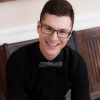Faculty
Eric Balboni
Voice
Tenor Eric Balboni is a native of Cape Cod, Massachusetts and has been performing since his first recital at the age of six. Mr. Balboni is a recent graduate of New York University’s Steinhardt School, having earned his Master’s Degree in Vocal Performance (Opera) as well as an Advanced Certificate in Vocal Pedagogy. During his time at NYU he learned the Barbara Doscher method of vocal instruction and began teaching voice lessons to undergraduate students as an adjunct voice instructor.
Recently, Mr. Balboni traveled to the Czech Republic to perform with the Prague Summer Nights Young Artist Festival where he performed as the Notary in Gianni Schicchi, covered the role of Gherardo, and covered the role of Don Ottavio in the historic Estates Theater where the opera was premiered by Mozart. He also performed in scenes from Le Nozze di Figaro as Basilio and Don Curzio.
Eric’s operatic debut was in NYU’s production of Cendrillon by Jules Massenet where he sang the role of Le Doyenne. Other NYU credits include solo and ensemble work in There Once was a Girl Named Jenny and A Night at the Opera. Recently Eric competed at the national level during the Classical Singer Magazine National Vocal Competition held in Chicago, Illinois. Over the past few years, Eric was involved in several recitals featuring the works of new composers such as the Dynamic Music Festival and several student recitals in which he helped premier both choral and solo repertoire.
Concert performances include the Faure Requiem, Schubert’s Mass in G, Bach’s High Mass in B Minor, and Handel’s Messiah.
Teaching Philosophy:
I am a third generation teacher, taking after my mother and both of my grandmothers. I teach because I love music and because, in fostering growth and guiding others, I can play a role in their musical journey as so many have done for me. I want to share what I have learned and inspire others to find expression through a healthy and balanced vocalism. I do not believe that music is an esoteric art form. Music pervades all aspects of life and constantly adapts. I aspire to inspire both singers and “non-singers” to make music a part of their lives and to explore their own musicianship regardless of future plans.
Education is the process by which we experience the world. We take experiences and learn and apply what we see to other aspects of our lives. My goal as an educator is to foster growth and promote success in a logical and methodical manner as well as to provide resources with which students may excel and discover while continually discovering. My role as teacher is to guide, support, collaborate, and to facilitate the acquisition of knowledge, technique, taste, and musicianship.
Singers learn by singing. Singers must take risks, make choices, trust in their bodies and their voices, and experiment both in the practice room and in front of their teacher. They also learn by listening and by making associations between feelings, proprioception and instincts, labeling those associations, and accessing those technical choices until they become consistent.
As a teacher my goals are to inspire, guide, demonstrate when appropriate, facilitate, support, and foremost to provide information. These goals are being met as the student can more consistently create healthy sounds and make choices on repertoire and style that are in line with the music. Short-term and long-term goals lead to long-term growth and success.
I communicate clearly and kindly with my students. I try to be transparent while still being supportive and always encouraging when students are trying and making improvements. I focus on the positive and inspire more hard work. I understand that all singers are in process and that as lifelong learners we are always improving and changing. In this way, my perspective is that we all are developing and as a teacher I must meet students where they are and show them the path to the next step. My teaching is not result-oriented, rather it lives in the process.
The relationship between the teacher and student is sacred. Both parties must be open, accepting and honest for any sort of work to be accomplished. The relationship between colleagues must be respectful, encouraging, and full of comradery. The relationship between the teacher and the greater field must be an open relationship of constant learning. The teacher must be aware of what is happening in the field and use their own discerning point of view to determine what relevant information to include in their own studio while being aware of the many differing strategies that exist. Not one method works for every student, and having an awareness of this can help you guide a student to their best singing self.
Understanding that the voice and the function of singing is based on scientific principles and physical laws allows the teacher to teach voice from a functional level. Taking that information and realizing that there are many applications or methods to disseminate that information allows for the teacher to reach a vast multitude of students. This method of differentiated instruction requires a teacher to be adaptable, open-minded and willing and able to help their singers through varied strategies and tools.

